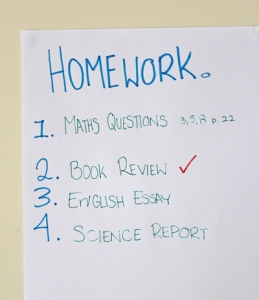 Children may not be motivated to do what they are supposed to do, often resulting in their parents exclaiming ‘Why isn’t my child more productive!’ As a result parents carry out various strategies to encourage their children to get on task, many a time to no avail. However, what is seldom recognised is that a child might have one or more good reasons for not doing something; a child may be confused, tired, upset, hungry, or disinterested. He may find the task overwhelming or not fully understand the significance.
Children may not be motivated to do what they are supposed to do, often resulting in their parents exclaiming ‘Why isn’t my child more productive!’ As a result parents carry out various strategies to encourage their children to get on task, many a time to no avail. However, what is seldom recognised is that a child might have one or more good reasons for not doing something; a child may be confused, tired, upset, hungry, or disinterested. He may find the task overwhelming or not fully understand the significance.
The effects of peer pressure may also be a contributing cause for procrastination as could a lack of organizational or time management skills. In effect, there are many reasons why children are not motivated to accomplish their tasks barring the notion that they are deliberately and purposefully counter- productive. In addressing the issue of demotivation amongst children, there are some basic strategies which may be considered to bring remedy to this problem. As a sequel to last week’s featured article spotlighting teenagers and their approach to productivity, the National Competitiveness and Productivity Council (NCPC) would like to reflect on some of the ways in which parents can assist in the drive towards greater productivity amongst the youth.
- Help kids develop a growth mind-set. Emphasize that one step at a time is all it takes to get going placing emphasis on the importance of personal effort. Demonstrate an “I can do it!” attitude. Small accomplishments lead toward bigger ones, so provide children with direct, immediate and constructive feedback so that they can experience success along the way to task completion.
- Encourage accountability. Children have to learn to take ownership of what they choose to do (or not do) and face the consequences of their decisions. Talk to your children about it. You might also share with them why you view challenges as opportunities to grow and why buckling down and taking control of a situation is not only gratifying but is also good preparation for other eventualities of life.
- Make it meaningful. If a task is not relevant to a child, chances are it will not get done. If it’s interesting and relates to something important or intriguing, or sparks the imagination and connects to the individual’s aspirations, then chances are the child will be motivated to try it.
- Pay attention to skill sets. Some children need new or better strategies for pacing, organizing or self-regulation. Help them find solutions to the problems they may be facing. For example, homework-related issues might involve learning to use an agenda or study guide; finding a quiet and well-equipped workspace and removing distractions. A child may also need assistance dealing with instructions, clarifying expectations or breaking a task down into smaller, manageable chunks.
- Strive for balance. Everyone needs down time—ample opportunity to relax, play, exercise or just take a break. This is especially important for children. It also gives them a chance to reflect and to create and consolidate ideas.
- Believe in the child. Help children develop self-confidence by appreciating their efforts and past successes. Allow them to see these successes as stepping-stones to future positive experiences and outcomes. Let children know that you are available to listen and to offer reinforcement and guidance as they continue to persevere.
Parents are well positioned to provide all of this and more, in order to facilitate their child’s productivity. By being attuned to your child’s individual needs and patterns of avoidance, it is possible to find the best kinds of strategies for a given situation. Remember to be patient, supportive, and resourceful and it will be possible to address avoidance situations as they arise.


